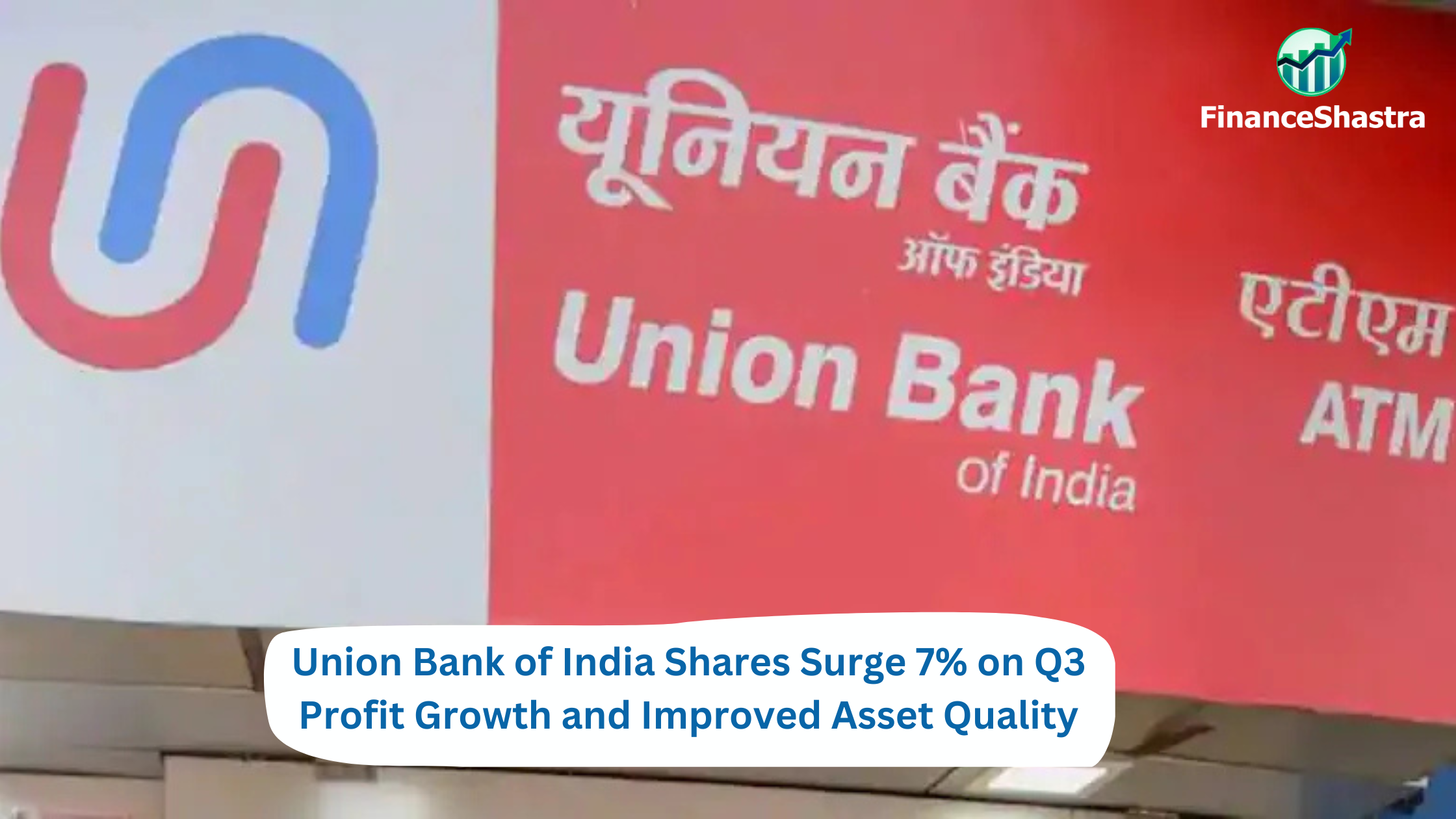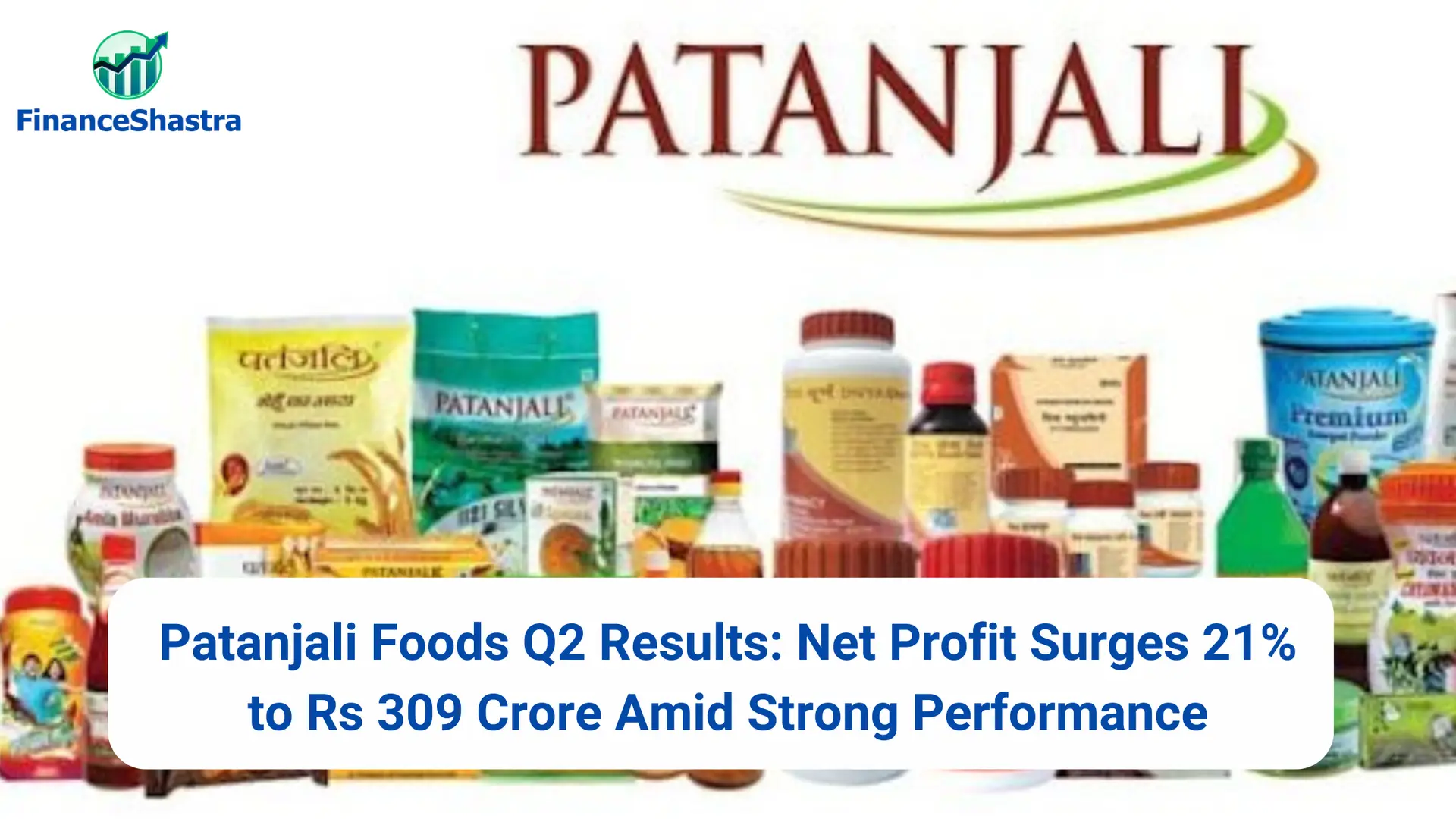Union Bank of India Shares Surge 7% on Q3 Profit Growth and Improved Asset Quality
Union Bank of India Ltd: Overview
Union Bank Ltd (UBL), established in 1919 and headquartered in Mumbai, is one of India’s leading public sector banks. With a legacy of over 100 years, UBI offers a wide range of banking and financial services, including retail banking, corporate banking, investment banking, and treasury operations. It has total advances of ₹9.5 trillion and deposits worth ₹12.2 trillion. The bank is listed on both the Bombay Stock Exchange (BSE) and National Stock Exchange (NSE) and operates across India with a significant presence in various key cities and towns. UBI plays a crucial role in India’s banking landscape, providing financial services to individuals, small businesses, and large corporations. It has network of about 8574 bank branches and 9080+ ATMs, and is giving employment to 74300+ employees.
The Indian banking industry is experiencing a transformation with the increasing adoption of digital banking, improved financial inclusion, and regulatory changes. Union Bank, having recently merged with Andhra Bank and Corporation Bank, is focused on strengthening its market position and expanding its digital footprint. The Indian banking sector, which has witnessed robust growth over the years, continues to face challenges such as non-performing assets (NPAs), regulatory pressures, and the need for capital adequacy. It has some branches overseas in Dubai and Sydney, helping to cater the demand there. However, the sector is poised for growth driven by expanding credit demand, digital adoption, and government-led initiatives aimed at improving financial inclusion.
Latest Stock News
Union Bank Ltd has showcased steady and sustained growth across its financial performance metrics. Over the past year, credit growth increased by 3.76%, deposits grew by 5.94%, and advances in the Retail, Agriculture, and MSME (RAM) segments rose by 9.26%. The bank reported an impressive 28.24% year-on-year growth in net interest income (NII), reaching ₹9,168 crore for Q3 FY25, supported by a net interest margin (NIM) of 3.08%.
Union Bank also made significant progress in improving asset quality. The gross non-performing asset (GNPA) ratio dropped to 3.85%, and the net NPA (NNPA) ratio declined to 0.82%, reflecting improved financial health. Credit costs also fell significantly from 1.24% in December 2022 to 0.63% in December 2023. The bank’s profitability and efficiency remain robust, with return on assets at 1.30% and return on equity at 17.75%. The book value per share improved to ₹135.90, while the capital adequacy ratio (CRAR) stood at a strong 16.72%, and the CET-I ratio rose to 13.59%, marking year-on-year improvements of 169 basis points and 188 basis points, respectively.
Union Bank’s lending activities also expanded significantly. The retail portfolio reached ₹2.02 lakh crore as of December 2024, contributing 22.11% to domestic advances. The agriculture portfolio grew to ₹1.85 lakh crore (20.30% of domestic advances), while the MSME portfolio stood at ₹1.30 lakh crore (14.29% of domestic advances). In the renewable energy sector, credit facilities worth ₹27,269 crore were extended, along with ₹645 crore sanctioned under the “Union Green Miles” initiative to promote electric vehicle financing. Additionally, the bank renewed or reviewed over 5.26 lakh accounts, demonstrating its commitment to customer-centric growth and sustainable business practices.
Business Segments
- Retail Banking: UBI’s retail banking division offers a comprehensive range of products and services catering to the individual needs of customers. It has shifted the focus to being more customers centric by using UPI payments, mobile banking apps, online account opening services, etc. These include savings accounts, personal loans, home loans, car loans, credit cards, and wealth management services. The bank’s extensive branch network and digital platforms allow customers to access services seamlessly, contributing to the growth of retail deposits and loans.
- Corporate Banking: UBI provides a wide range of services to large businesses, SMEs (small and medium enterprises), and government entities. These include working capital financing, term loans, trade finance, cash management, and project finance. It also offers loan services, ease in transactions for deals. The bank has specialized products designed to meet the unique needs of different industries, including manufacturing, services, and infrastructure.
- Treasury Operations: The treasury division of Union Bank manages the bank’s investments in government securities, foreign exchange, and money market instruments. The bank aims to optimize the returns from these investments while adhering to regulatory guidelines and managing risks effectively. The treasury division also plays a vital role in foreign exchange management and assists in hedging currency and interest rate risks for corporate clients.
- Digital & Payments Business: Digital banking is one of the core strategic pillars for Union Bank. The bank has invested heavily in digital transformation and offers a range of online and mobile banking services, enabling customers to manage their accounts, transfer funds, pay bills, and invest in financial products with ease. UBI’s initiative for this segment includes UBI mobile banking, UPI, net banking, e-wallets service, etc.
Subsidiary Information
- Union Bank of India (UK) Ltd: The UK-based subsidiary of UBI focuses on providing banking services to NRIs (Non-Resident Indians) and customers with business interests in the UK and Europe. The subsidiary helps UBI establish a presence in international markets and serves as a gateway for facilitating cross-border trade and investments.
- Union Asset Management Company Pvt Ltd: Union Asset Management Company (AMC) is the asset management arm of UBI, providing a variety of investment products such as mutual funds, exchange-traded funds (ETFs), and portfolio management services (PMS). The AMC focuses on delivering value to investors by offering diversified and professionally managed investment options.
- Union Bank of India (Singapore) Ltd: Union Bank’s Singapore branch serves as a significant player in providing financial services to customers in Southeast Asia. The branch offers a range of corporate and retail banking products, including trade finance, foreign exchange, and term loans, with a particular focus on supporting Indian businesses operating in the region.
- Union Finance and Investment Co. Pvt Ltd: A subsidiary engaged in various financial activities, Union Finance provides services such as lending, leasing, and investment management. The company plays a role in UBI’s broader strategy of offering financial products to individuals and businesses.
- Union Bank of India Services Ltd:
Q3 FY25 Earnings
- Revenue of ₹27135 crore in Q3 FY25 up by 6.3% YoY from ₹25521 crore in Q3 FY24.
- Financing Profit of ₹1274 crore in this quarter at a margin of 5% compared to 5% in Q3 FY24.
- Profit of ₹4623 crore in this quarter compared to a ₹3625 crore profit in Q3 FY24.
Financial Summary
| Amount in ₹ Cr | Q3 FY24 | Q3 FY25 | FY23 | FY24 |
| Revenue | 25521 | 27135 | 81163 | 100376 |
| Interest | 16236 | 17756 | 48083 | 63364 |
| Expenses | 8012 | 8096 | 36155 | 32422 |
| Financing Profit | 1273 | 1274 | -3024 | 4590 |
| Financing Margin | 5% | 5% | -4% | 5% |
| Other Income | 4281 | 4614 | 15915 | 17813 |
| Net Profit | 3625 | 4623 | 8512 | 13797 |
| NPM | 14.2% | 17.1% | 10.5% | 13.7% |
| EPS | 4.9 | 6.1 | 12.5 | 18.1 |


